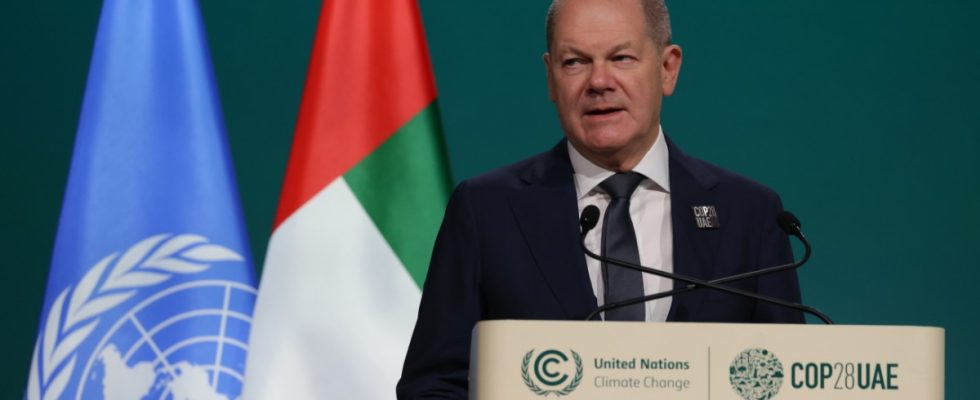“We must now all show a firm determination to get out of fossil fuels – first and foremost coal. We can set sail for this at this climate conference,” said the SPD politician in his speech in Dubai on Saturday. Olaf Scholz also said that it is still possible to reduce climate-damaging greenhouse gas emissions this decade to such an extent that the 1.5 degree target agreed in Paris in 2015 is met. “But science tells us very clearly: We have to hurry up – despite all the geopolitical tensions,” he said, referring to the wars in the Gaza Strip and Ukraine.
Climate change remains “the great, global challenge of our time,” emphasized Scholz. But there are already all the necessary means to meet this challenge. “The technologies are there: wind power, photovoltaics, electric drives, green hydrogen.” Germany is pressing ahead with these developments. “As a successful industrial country, we want to live and work climate-neutrally by 2045.”
Scholz appeals to the almost 200 countries that will be meeting in Dubai until mid-December to get involved in the energy transition. “Let’s make the expansion of renewable energies the number one energy policy priority – worldwide!” He specifically proposed an agreement on two binding goals that are already agreed upon in the industrialized countries of the G20: on the one hand, tripling the expansion of renewable energies and, on the other hand, doubling energy efficiency – both by 2030. So far, more than 110 countries have agreed to expand green electricity production at this pace.
Because natural gas is still being used in the transition period to a climate-neutral economy, Scholz called for more climate-friendly funding. Methane emissions from the energy industry would also have to be reduced. The Chancellor also insisted on restructuring the international financial institutions. At least some progress has been made at the World Bank. Many countries in the global south, but also China, are calling for greater participation in the still Western-dominated institutions such as the World Bank and the International Monetary Fund, as well as new financing instruments.
Scholz gave the final starting signal for the climate club together with Chile on Friday in Dubai. The current 36 members want, among other things, to try to make climate protection efforts comparable in order to prevent trade conflicts.
20 countries want to triple nuclear power
A good 20 countries want to significantly increase energy production from nuclear power for the benefit of the climate. Capacity should be tripled by 2050, according to a statement published on Saturday at the World Climate Conference, which was signed by France and the USA, among others. Canada, Japan, Great Britain and several other European countries have also joined the pact.
After its nuclear phase-out this year, Germany is hardly among the signatories. However, in many other countries, including France and Great Britain, nuclear power continues to play a crucial role in energy supply.

